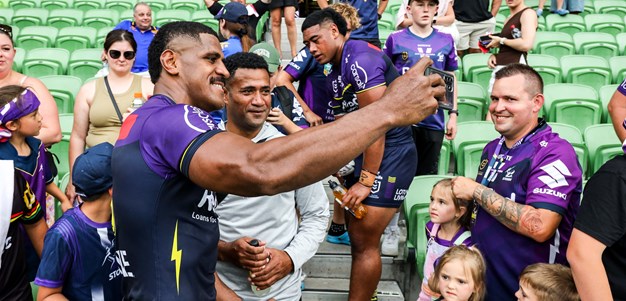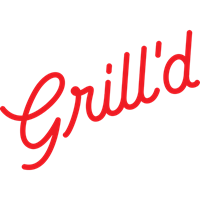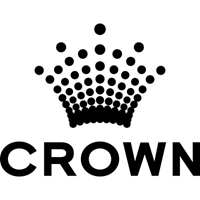Content supplied by Fuel Your Life
You may have noticed many NRL players, including several Storm players have been out of matches over the past few weeks.
Some have picked up a slight injuries, but others are simply being rotated out of their usual position on the field to allow them to rest.
Our team of Sports Dietitians at Fuel Your Life have been working closely with all players this season to ensure their nutrition plans are fine tuned for rest days and the changes that need to be made from a nutrition standpoint to ensure rest and recovery are being prioritised.
We all know rest in important, but why are some of our key players being rested when they aren’t injured? And what nutrition principles should they be following to assist with injury prevention or rehab following an injury?
This article explains 7 ways that nutrition plays a role in rest and injury prevention, including actionable steps active individuals can apply to assist with both injury prevention and a quicker recovery from an injury.
1. Prioritise Fuelling and Recovery Needs
Under-fuelling and/or under-recovering is the biggest nutrition factor placing an athlete (or everyday active individuals) at risk of an injury. Those who are not consuming enough of the right foods at the right time before training sessions or are skipping out on their recovery meal, are significantly more likely to pull up with an injury and be out of action for several weeks at minimum.
· Consume a carbohydrate based meal/snack 2-4 hours before training sessions and competition to provide sufficient fuel for optimal performance. Those who don’t will fatigue more quickly during exercise and are significantly more likely to suffer from muscle cramping and/or an injury. A Fuel Your Life Accredited Sports Dietitian will be able to provide you with specific quantities relative to your individual needs.
· Include a sufficient amount of protein and carbohydrates in your recovery meal within an hour of finishing training or competitions. Skipping this step means you won’t be getting maximum training adaptations from the session and won’t be providing your body with the building blocks it needs to repair and refuel muscles.
· If you are injured, don’t cut your food intake in half. Depending on the change in your training load and the nature of the injury, you will likely be expending less energy through a reduction in training but you also need to be aware that recovery also increases energy requirements. A Sports Dietitian will be able to help you strike the right balance.
2. Spread Your Protein Intake Across the Day
Depending on the nature of the injury, there will likely be some level of decrease in training load across the week to allow the body to recovery. With this comes the risk of muscle loss (atrophy), especially for more significant injuries requiring immobilisation of a limb. Aside from striking the right balance with your energy intake, consuming enough protein and spreading it across the day will minimise muscle losses.
· Include 25-30g high quality protein in 3-4 of your meals and snacks across the day.
· More is not always better. The body can only utilise a certain amount of protein towards muscle protein synthesis at a time (the equivalent to 120g raw weight chicken or steak).
· A whey protein powder to fortify meals (e.g. stirred through porridge at breakfast) can help you meet protein needs when used strategically.
3. Choose Your Carbs Wisely
Carbohydrates are the body’s preferred fuel source and athletes shouldn’t be avoiding them during rest and recovery but rather be dialed down, according to the nature of the injury and modifications to an athlete’s training volume across the week.
· Include sufficient carbohydrates in and around training/rehab sessions to ensure you are performing at your peak and obtaining the desired training outcomes from these sessions.
· Reduce your intake of carbohydrates at meals away from training and focus on higher fibre grain foods and carbohydrates as these will assist with reducing the low grade inflammation underpinning an injury. Choose rolled oats, heavy dense bread, fruit, sweet potato, quinoa and brown basmati rice over high sugar cereals, white bread, fruit juice, white potato and jasmine rice.
4. Go for Oily Fish, Not Fish Oil
Oily fish such as salmon, trout, mackerel and tuna are excellent sources of omega 3 fatty acids which have been shown to dampen inflammation. This is important for both reducing your risk of an injury as well as reducing the inflammatory response associated with an injury itself. However, there has been some contention as to whether high dose fish oil supplements as a source of omega 3 fats are actually beneficial or could be doing more harm than good. The theory is that some level of inflammation is actually beneficial to recovery and too high an intake of omega 3 could actually dampen this too much.
· Include 2-3 x 100-150g servings of oily fish per week
· Speak with your doctor or a Fuel Your Life dietitian as to whether a fish oil supplement is appropriate for your needs, and how to dose this correctly
5. Flood Your Plate with Colourful Fruit and Veg
Further to the above point, colourful plant foods are high in a range of antioxidants to assist with bringing inflammation levels down to speed up injury recovery. They also play an important role in injury prevention by buffering some of the chronic stress placed on the body from a heavy training load.
· Include 2-3 serves fruit per day, especially berries and citrus fruits
· Include at least 5 serves of veggies per day, especially dark leafy greens and red/orange vegetables like capsicum, tomato, carrot and pumpkin
6. Use Supplements Strategically
There is some emerging evidence that some sports supplements may assist with the recovery process following an injury. We have some evidence to suggest that supplementation with creatine monohydrate may help reduce muscle wastage and that collagen supplementation may assist with recovery from soft tissue injuries, especially ACLs. Supplements can be dangerous if not consuming the right types, at the right times. Also if you have a desire to play your sport professionally, it is important you ensure that your supplements do not contain any banned substances – that’s where a Fuel Your Life Sports Dietitian can help to prescribe the right supplement for you.
· Speak with a Fuel Your Life Sports Dietitian as to whether creatine supplementation would assist you with recovery. If recommended, it will need to be taken daily (not just on rehab days).
· Speak with a Fuel Your Life Sports Dietitian as to whether collagen supplementation would assist you with recovery. If recommended, it needs to be taken alongside vitamin C to help it work effectively and consumed 30-60 mins before rehab sessions.
7. Rest is a Key Aspect of Injury Prevention as well as Injury Management
Not all injuries are preventable but adequate rest is crucial for athletes wanting to minimise the chances of being sidelined for weeks to months following an injury. The higher the workload, the greater the stress placed on the body and the greater the subsequent chance of a player pulling up with an injury.
Once an injury is sustained, the body needs additional rest to allow for a speedier recovery. Sleep is also a key aspect in injury management, alongside physiotherapy, medical and nutrition interventions.
· Incorporate 1-2 rest days into your week. More training is not always better.
· Make 7-9 hours of good quality sleep a priority each and every night.
· If you pull up with a niggle after a training session, make sure you are resting or modifying workouts accordingly rather than pushing through
Fuel Your Life is an award-winning nationwide company sports dietitian available to clients and teams in all areas of the country.
If you are an athlete, or a coach of a team, be sure to contact us to help you or your team perform at your peak.
For more tips, be sure to check out our Instagram page @fuelyourlifeaus, or to find your closest dietitian, get in touch with our team today via our website www.fuelyourlife.com.au.


















